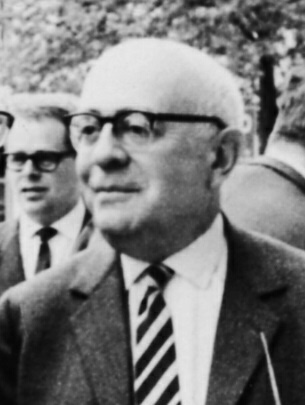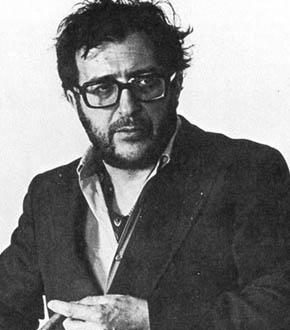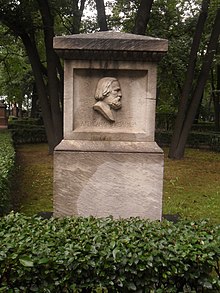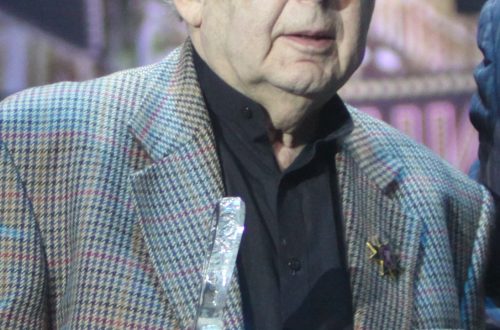
Theodor W. Adorno |
Theodor W. Adorno
German philosopher, sociologist, musicologist and composer. He studied composition with B. Sekles and A. Berg, piano with E. Jung and E. Steuermann, as well as the history and theory of music at the University of Vienna. In 1928-31 he was the editor of the Viennese music magazine “Anbruch”, in 1931-33 he was an assistant professor at the University of Frankfurt. Expelled from the university by the Nazis, he emigrated to England (after 1933), from 1938 he lived in the USA, in 1941-49 – in Los Angeles (employee of the Institute of Social Sciences). Then he returned to Frankfurt, where he was a university professor, one of the leaders of the Institute for Sociological Research.
Adorno is a versatile scholar and publicist. His philosophical and sociological works are in some cases also musicological studies. Already in Adorno’s early articles (late 20s) a socio-critical tendency was clearly expressed, which was complicated, however, by manifestations of vulgar sociologism. During the years of American emigration, the final spiritual maturation of Adorno came, his aesthetic principles were formed.
During the work of the writer T. Mann on the novel Doctor Faustus, Adorno was his assistant and consultant. The description of the system of serial music and its criticism in the 22nd chapter of the novel, as well as the remarks about L. Beethoven’s musical language, are based entirely on Adorno’s analyses.
The concept of the development of musical art put forward by Adorno, the analysis of Western European culture is devoted to a number of books and collections of articles: “Essay on Wagner” (1952), “Prisms” (1955), “Dissonances” (1956), “Introduction to Musical Sociology” (1962) and etc. In them, Adorno appears as a sharp scientist in his assessments, who, however, comes to pessimistic conclusions about the fate of Western European musical culture.
The circle of creative names in the works of Adorno is limited. He focuses mainly on the work of A. Schoenberg, A. Berg, A. Webern, rarely mentioning equally important composers. His rejection extends to all composers in any way connected with traditional thinking. He refuses to give a positive assessment of creativity even to such major composers as S. S. Prokofiev, D. D. Shostakovich, P. Hindemith, A. Honegger. His criticism is also directed at the post-war avant-gardists, whom Adorno blames for the loss of the naturalness of the musical language and the organic nature of the artistic form, the cohesion of mathematical calculation, which in practice leads to sound chaos.
With even greater implacability, Adorno attacks the so-called “mass” art, which, in his opinion, serves the spiritual enslavement of man. Adorno believes that true art must be in constant conflict with both the mass of consumers and the apparatus of state power that regulates and directs official culture. However, art, which opposes the regulating trend, turns out, in Adorno’s understanding, to be narrowly elitist, tragically isolated, killing the vital sources of creativity in itself.
This antithesis reveals the closedness and hopelessness of Adorno’s aesthetic and sociological concept. His philosophy of culture has successive links with the philosophy of F. Nietzsche, O. Spengler, X. Ortega y Gasset. Some of its provisions were formed as a reaction to the demagogic “cultural policy” of the National Socialists. The schematism and paradoxical nature of Adorno’s concept were clearly reflected in his book The Philosophy of New Music (1949), built on a comparison of the work of A. Schoenberg and I. Stravinsky.
Schoenberg’s expressionism, according to Adorno, leads to the disintegration of the musical form, to the refusal of the composer to create a “finished opus”. A holistic closed work of art, according to Adorno, already distorts reality by its orderliness. From this point of view, Adorno criticizes Stravinsky’s neoclassicism, which allegedly reflects the illusion of reconciliation of individuality and society, turning art into a false ideology.
Adorno considered absurd art to be natural, justifying its existence by the inhumanity of the society in which it arose. A true work of art in modern reality, according to Adorno, can remain only an open “seismogram” of nervous shocks, unconscious impulses and vague movements of the soul.
Adorno is a major authority in modern Western musical aesthetics and sociology, a staunch anti-fascist and critic of bourgeois culture. But, criticizing bourgeois reality, Adorno did not accept the ideas of socialism, they remained alien to him. A hostile attitude towards the musical culture of the USSR and other socialist countries manifested itself in a number of performances by Adorno.
His protest against the standardization and commercialization of spiritual life sounds sharp, but the positive beginning of Adorno’s aesthetic and sociological concept is much weaker, less convincing than the critical beginning. Rejecting both modern bourgeois ideology and socialist ideology, Adorno saw no real way out of the spiritual and social impasse of modern bourgeois reality and, in fact, remained in the grip of idealistic and utopian illusions about a “third way”, about some kind of “other” social reality.
Adorno is the author of musical works: romances and choirs (to texts by S. George, G. Trakl, T. Deubler), pieces for orchestra, arrangements of French folk songs, instrumentation of piano pieces by R. Schumann, etc.





